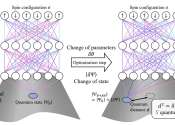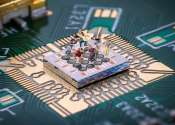New shapes of photons open doors to advanced optical technologies
Researchers from the University of Twente in the Netherlands have gained important insights into photons, the elementary particles that make up light. They 'behave' in an amazingly greater variety than electrons surrounding ...









